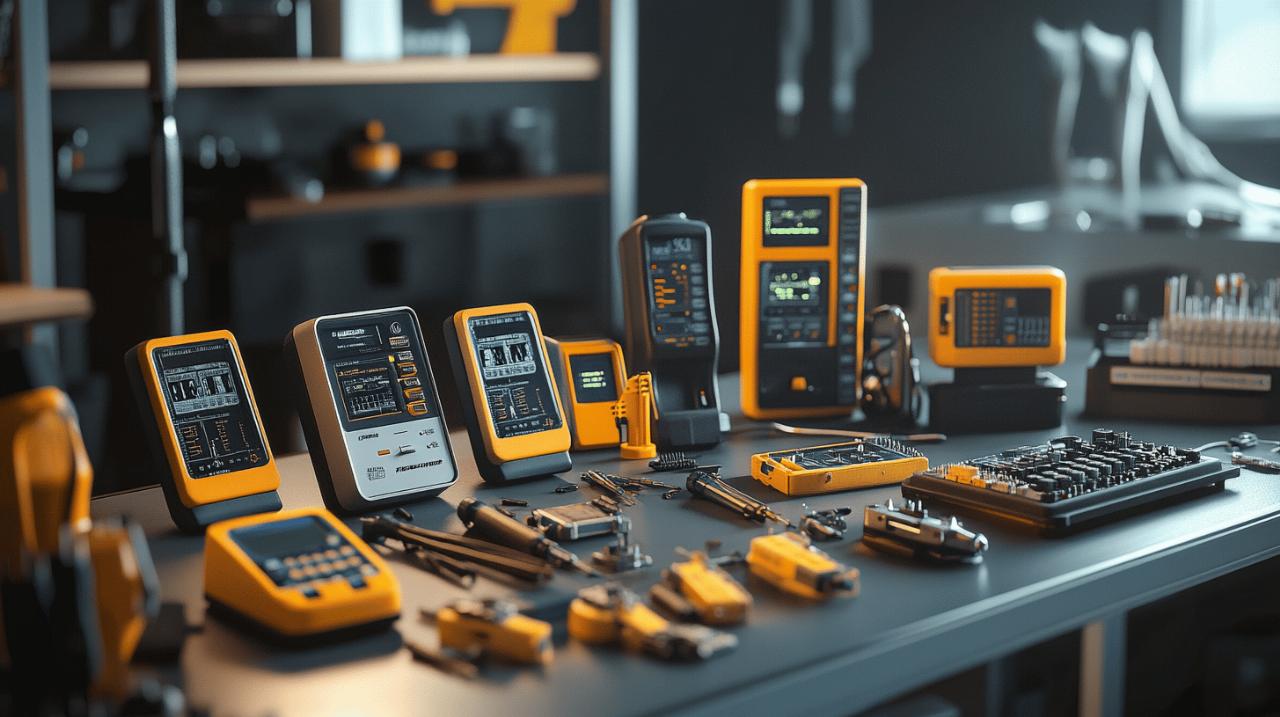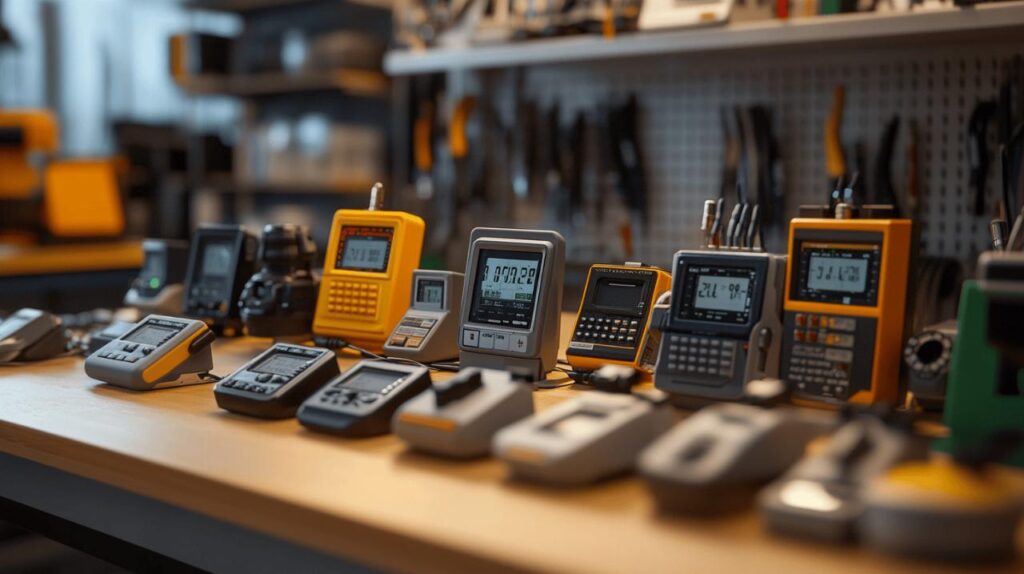When it comes to reliable measurement tools for electrical work, few names command as much respect in the industry as Fluke Corporation. For professional electricians, technicians, and even dedicated hobbyists, selecting the right multimeter can make the difference between efficient troubleshooting and frustrating guesswork. This comprehensive review explores the landscape of Fluke digital multimeters, examining their essential capabilities, technical specifications, and how different models stack up against one another to help you make an informed purchasing decision.
Understanding fluke multimeter fundamentals and essential measurement capabilities
What Makes a Multimeter Indispensable for Electrical Work
At its core, a multimeter serves as the electrical professional's window into the invisible world of circuits and current flow. These versatile instruments enable users to measure voltage across both alternating and direct current systems, assess resistance in components, verify continuity in wiring, and even evaluate capacitance in various applications. Whether you're diagnosing a faulty circuit in a commercial installation or simply checking the charge remaining in a battery, a quality multimeter provides the precise information needed to work safely and effectively. Modern Fluke instruments typically incorporate features that extend well beyond basic measurement, including frequency detection, diode testing capabilities, and temperature measurement functionality that proves invaluable across diverse electrical scenarios. The sophistication of these tools reflects decades of refinement, with each generation bringing improvements in accuracy, safety, and user-friendly operation that professional sparkies have come to depend upon in their daily work.
Digital versus analogue: choosing the right display technology
The evolution from analogue needle displays to digital readouts represents one of the most significant advances in multimeter technology. Digital multimeters from Fluke offer clear numerical displays that eliminate the ambiguity inherent in reading a swinging needle, particularly in challenging lighting conditions. Many contemporary models incorporate backlight display technology, often using efficient LED lighting that illuminates the screen when working in poorly lit spaces such as electrical cabinets, loft conversions, or underneath machinery. This digital precision delivers measurements with remarkable accuracy, typically displaying values to several decimal places depending on the model and measurement range selected. The screens themselves have evolved to provide larger digits and improved contrast ratios, reducing eye strain during extended use. Whilst some traditionalists maintain affection for analogue meters, particularly for observing fluctuating signals, the practical advantages of digital technology have made it the overwhelming choice for professional applications. The ability to capture minimum, maximum, and average readings over time adds another dimension of functionality that simply wasn't possible with older needle-based instruments, making digital options the sensible choice for anyone serious about electrical testing work.
Key Features and Technical Specifications in Professional Fluke Models
True RMS Capability and Accuracy in AC Signal Measurements
Among the technical specifications that separate professional-grade instruments from basic models, True RMS measurement capability stands as perhaps the most crucial for accurate alternating current work. Traditional averaging multimeters can provide misleading readings when measuring non-sinusoidal waveforms, which have become increasingly common with the proliferation of electronic loads, variable speed drives, and switching power supplies throughout modern electrical installations. True RMS multimeters calculate the actual heating effect of the current or voltage being measured, delivering accurate readings regardless of waveform distortion. This becomes absolutely essential when troubleshooting equipment powered by electronic ballasts, dimmer switches, or any system involving pulse-width modulation. Fluke instruments featuring this technology, which appears across most of their professional range, ensure that technicians aren't chasing phantom readings that could lead to incorrect diagnoses. The measurement accuracy specifications themselves vary across models, with professional instruments like those rated for industrial applications typically offering tighter tolerances than entry-level options. When selecting a multimeter, understanding whether your typical work involves clean sinusoidal signals or the messy reality of modern electronic loads will guide whether True RMS capability justifies the additional investment.
Safety ratings, backlighting and additional functionality
Electrical safety represents another critical dimension where Fluke multimeters demonstrate their professional pedigree. The CAT ratings system categorises the electrical environments where instruments can be safely used, with CAT III 600V covering most distribution-level electrical work whilst CAT IV 600V extends protection to utility connection and overhead line applications. Many Fluke models carry dual ratings such as CAT III 1000V alongside CAT IV 600V, providing versatility across different working environments. These safety certifications aren't merely marketing features but reflect rigorous design and testing protocols that protect users from transient voltage spikes that could otherwise damage equipment or, more seriously, cause injury. Beyond basic measurement and safety, contemporary Fluke instruments incorporate features that enhance their practical utility in the field. Capacitance measurement allows testing of motor start capacitors and other components without requiring separate instruments, whilst frequency measurement proves valuable when commissioning variable speed drives or diagnosing inverter issues. Some models include temperature measurement using K-type thermocouples, transforming the multimeter into a versatile diagnostic tool for HVAC applications. The inclusion of these additional functions, combined with robust construction featuring reinforced cases and waterproof or dustproof ratings on selected models, demonstrates Fluke's understanding of the demanding environments where professional electricians work daily.
Comparing popular fluke models: from entry-level to professional grade
Fluke 101 for Home DIY and Basic Applications
 For those whose electrical work centres around household projects and occasional troubleshooting rather than professional installations, understanding where more affordable options fit within the Fluke range becomes important. Entry-level models provide the essential measurement capabilities needed for domestic electrical work without the advanced features that professional sparkies require daily. These instruments typically measure voltage up to 600V across both alternating and direct current, handle resistance and continuity testing, and often include basic capacitance measurement. The compact form factor of these basic models makes them easy to store in a toolbox and comfortable to operate single-handed, whilst simplified control layouts reduce the learning curve for occasional users. Battery life on these instruments often extends to hundreds of hours, meaning the included battery will last through many projects before requiring replacement. Whilst they may lack the rugged construction, advanced safety ratings, and sophisticated measurement functions of their professional siblings, these entry-level instruments still carry the Fluke name and the quality assurance that accompanies it, making them a sound investment for serious hobbyists and homeowners who want reliable measurements without professional-tier pricing.
For those whose electrical work centres around household projects and occasional troubleshooting rather than professional installations, understanding where more affordable options fit within the Fluke range becomes important. Entry-level models provide the essential measurement capabilities needed for domestic electrical work without the advanced features that professional sparkies require daily. These instruments typically measure voltage up to 600V across both alternating and direct current, handle resistance and continuity testing, and often include basic capacitance measurement. The compact form factor of these basic models makes them easy to store in a toolbox and comfortable to operate single-handed, whilst simplified control layouts reduce the learning curve for occasional users. Battery life on these instruments often extends to hundreds of hours, meaning the included battery will last through many projects before requiring replacement. Whilst they may lack the rugged construction, advanced safety ratings, and sophisticated measurement functions of their professional siblings, these entry-level instruments still carry the Fluke name and the quality assurance that accompanies it, making them a sound investment for serious hobbyists and homeowners who want reliable measurements without professional-tier pricing.
Fluke 117 and 87V: Robust Options for Professional Electricians
Moving up the range, the Fluke 115 Digital Multimeter for Technicians establishes itself as a capable workhorse with True RMS measurement, minimum, maximum, and average recording functions, and CAT III 600V safety rating. This model measures alternating and direct voltage up to 600V, handles current measurement up to 10A with brief overload capacity, and includes resistance, continuity, frequency and capacitance testing. Its operating temperature range from minus ten to plus fifty degrees Celsius ensures reliable performance across typical working conditions, whilst the impressive 400-hour battery life means fewer interruptions for battery changes during busy periods. The instrument ships with a protective holster, battery, and test leads, providing everything needed to begin work immediately. With dimensions of 167 by 84 by 46 millimetres and weighing 550 grams, it strikes a practical balance between screen size and portability. The three-year warranty reflects Fluke's confidence in the instrument's durability. For professional electricians requiring even greater capability, the Fluke 117 Electrician's Multimeter adds features specifically valuable for troubleshooting electrical installations, earning recognition as an expert-level instrument. Meanwhile, the Fluke 87V Industrial Multimeter represents the pinnacle of the handheld range, offering enhanced accuracy specifications, extended measurement ranges, and the rugged construction necessary for demanding industrial environments. The Fluke 179 True-RMS Digital Multimeter similarly positions itself at the professional tier, providing comprehensive measurement capabilities with the precision that technical work demands. These professional instruments command higher prices, but for electricians whose livelihoods depend on accurate measurements and reliable tools, they represent essential investments rather than discretionary purchases.
Making the Right Purchase Decision and Considering Alternatives
Where to Buy Fluke Multimeters and Finding the Best Value
Once you've identified which Fluke model best suits your requirements, the next consideration becomes where to make your purchase. Major online retailers like Amazon stock extensive ranges of Fluke products, often with competitive pricing and customer reviews that provide real-world perspectives on instrument performance. Specialist electrical suppliers frequently carry comprehensive selections, and their staff can often provide informed guidance based on your specific application needs. PASS Ltd, operating from Wilson Street in Thornaby, Stockton-on-Tees, serves as an authorised UK distributor offering worldwide shipping, with branches extending across Teesside, Leeds, Glasgow, Belfast, and London providing regional accessibility. They offer free delivery on orders exceeding £249, though exclusions apply, and occasionally run promotions such as complimentary accessories with qualifying purchases. When comparing prices across suppliers, remember to factor in not just the headline cost but also delivery charges, warranty terms, and the availability of after-sales support. Purchasing from authorised distributors ensures genuine Fluke products with full manufacturer warranties, whilst buying from unknown sellers, particularly through auction sites, carries risks of counterfeit instruments that may lack proper safety features despite appearing cosmetically similar to genuine articles. For professional users, establishing a relationship with a reliable supplier can provide long-term benefits through technical support, calibration services, and access to the full range of Fluke accessories and complementary instruments.
Evaluating alternative brands: peaktech and chauvin arnoux
Whilst Fluke dominates discussions of professional multimeters, a balanced purchasing decision requires considering whether alternative brands might better suit particular needs or budgets. Companies such as PeakTech and Chauvin Arnoux produce quality instruments that compete effectively in various market segments, often offering similar specifications at lower price points. For hobbyists and occasional users, brands including Crenova, AstroAI, Klein Tools, Etekcity, Greenlee, Innova, Kaiweets, and Neoteck provide options worth examining. Independent testing by organisations such as GearLab evaluates multimeters across categories including direct current measurements, alternating current measurements, additional functions, ease of use, and the quality of included probes. Their assessments reveal that whilst the Fluke 117 scores highly for professional electricians, instruments like the Crenova MS8233D offer impressive functionality at considerably lower cost, making them attractive for those starting electrical projects. The AstroAI 6000 combines measurement capabilities with hobbyist-friendly pricing, whilst the AstroAI AM33D serves those working to tight budgets who need occasional electrical testing capability. These alternatives demonstrate that quality multimeters exist across the price spectrum, and selecting the right instrument involves matching your specific requirements, usage frequency, and budget to the features and reliability offered by various manufacturers. For professional electricians whose reputations and safety depend on their tools, the premium attached to Fluke instruments reflects generations of proven reliability and comprehensive support infrastructure. For others, exploring alternatives might reveal instruments that deliver everything needed without the professional-tier pricing, allowing resources to be allocated across a broader tool collection.

